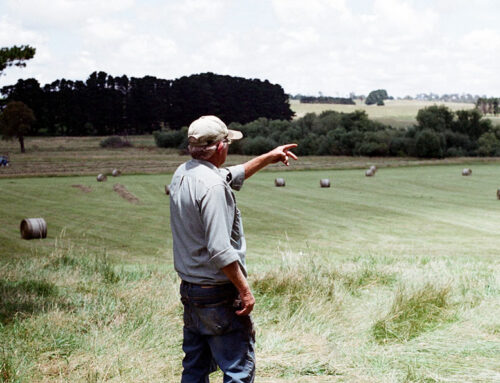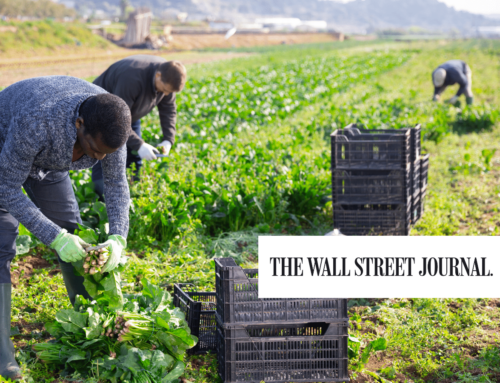View or download the letter as a PDF.
Some common sense reforms in the budget request include trimming crop insurance premium subsidies from 62 percent to 48 percent and reducing payment limit loopholes.
Taxpayers for Common Sense joined a number of other fiscally conservative or free market focused groups on a letter thanking the White House Office of Management and Budget (OMB) for using the FY2019 budget request to keep the focus on common sense reforms to the agricultural income safety net.
While there were plenty of parts of the President’s Budget Request with which we took issue, the budget’s call for trimming the overly-generous crop insurance program and eliminating numerous special interest income subsidy programs available for agricultural businesses was a bright spot. Taxpayers commends the staff at OMB for advocating for these common sense reforms and looks forward to implementing them in the upcoming Farm Bill debate.
Read the full letter below:
Director Mick Mulvaney and staff:
On behalf of the organizations and individuals below, we write to express our thanks for the constructive reforms to major agriculture programs requested in the Administration’s Fiscal Year 2019 budget proposal. If enacted, these reforms would modernize the agricultural safety net while cutting wasteful spending, limiting excess taxpayer exposure to risk, and reducing the prevalence of crony capitalism.
Your budget calls for a number of common sense, cost-saving reforms. These include:
- Trimming crop insurance premium subsidies from 62 percent to 48 percent.
- Reducing by 2 percent the government subsidized target rate of return for private insurance companies.
- Limiting premium subsidies, commodity payments, and conservation assistance to producers with Adjusted Gross Incomes of $500,000 or less.
- Reducing payment limit loopholes.
- Ending special treatment for certain products such as peanuts, cotton, wool, and livestock.
- Prioritizing conservation funding based on positive outcomes.
Together, these changes could save approximately $47 billion over ten years. Not only have they been long-supported by free market organizations and experts, many of the reforms above were recommended by the Congressional Budget Office (CBO) in 2016 as options for deficit reduction. Since passage of the 2014 Farm Bill the actions and rhetoric of the Agriculture Committees make it clear taxpayers are unlikely to obtain the agricultural safety net savings that were promised. CBO projects outlays for “shallow loss” programs will exceed original estimates by $13 billion over their 5-year authorization. Outlays for Farm Bill authorized supplemental disaster programs have cost $6.2 billion in just Fiscal Years 2014-2016, exceeding CBO’s 10-year projection of $3.8 billion. While some of these cost overruns are offset by less than originally projected costs in taxpayer subsidized crop insurance and dairy supports, the Agriculture Committees have made clear their intention to use the 2018 Farm Bill to reverse these savings.
Perhaps more important than generating much needed savings, the reforms prescribed in your Fiscal Year 2019 budget would improve the agricultural safety net not only for farmers, but also taxpayers, consumers, and the environment. Bringing federal farm programs in line with the true risks and needs of agribusiness would empower farmers to diversify and invest in innovative practices, lower barriers to entry for new, young farmers, and level the playing field between the great diversity of businesses across regions, commodity specialization and business structures.
The reforms to U.S. agricultural policy outlined in this budget should be the starting point for the Senate and House Agriculture Committees as Congress begins the process of negotiating the upcoming Farm Bill.
Thank you again for your valuable contributions to these important issues.
Sincerely,
Nan Swift, Director of Federal Affairs, National Taxpayers Union
Josh Sewell, Senior Policy Analyst, Taxpayers for Common Sense
Caroline Kitchens, Federal Affairs Manager, R Street Institute
Phil Kerpen, President, American Commitment
Norm Singleton, President, Campaign for Liberty
Jonathan Bydlak, President, Coalition to Reduce Spending
Tom Schatz, President, Council for Citizens Against Government Waste
Adam Brandon, President, FreedomWorks
Vince Smith, Ph.D., Professor of Economics, Montana State University*
David Williams, President, Taxpayers Protection Alliance
CC: Nora Stein, Acting Branch Chief; Jennifer Bell, Crop Insurance and RD Examiner; Adrienne Lucas, Natural Resources DAD; Susan Leetmaa, Subsidy Program Examiner; Joe Montoni, Conservation Examiner











Get Social